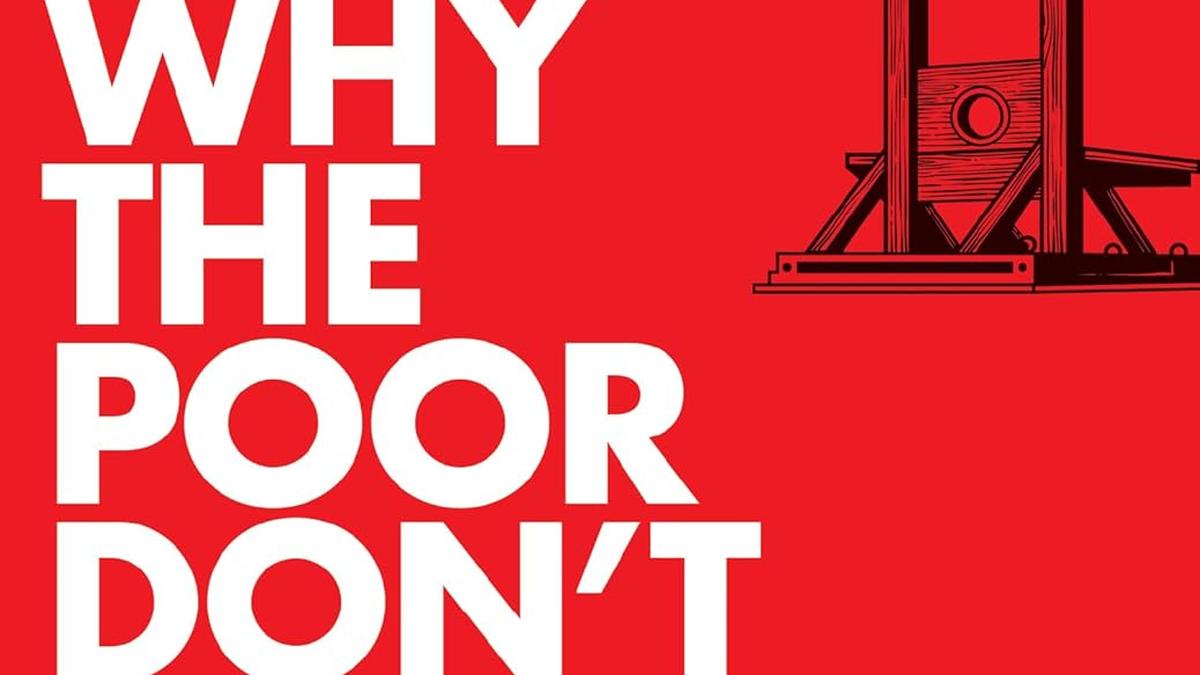Science
Exploring the Disconnect: Why the Poor Don’t Revolt in India

The question of why the poor in India do not rise against the wealthy has long intrigued thinkers across various disciplines. In his latest book, Why the Poor Don’t Kill Us, author and journalist Manu Joseph delves into this complex issue but ultimately leaves readers wanting more. Published on August 25, 2025, the book offers sharp observations but lacks the depth of analysis many had hoped for.
Joseph opens with a provocative premise: why do those in poverty tolerate the vast disparities of wealth surrounding them? The book’s early chapters are engaging, filled with vivid anecdotes and dark humor. Readers are drawn in by Joseph’s insightful observations, which reflect a keen understanding of the Indian social fabric. Yet, as the narrative progresses, it becomes apparent that these compelling anecdotes do not culminate in a rigorous examination of the underlying factors that contribute to this societal dynamic.
As the book extends beyond 250 pages, it transforms into a collection of disjointed reflections. Joseph’s examination of India’s elite often feels detached, as he frequently refers to them as “they,” distancing himself from the very class he critiques. He admits to underpaying his domestic workers but suggests only that readers consider tipping more—a solution that many may find insufficient.
The topic of why the poor do not revolt has engaged some of India’s greatest minds, including political leaders and social reformers. Figures such as B.R. Ambedkar have pointed out that poverty in India is intricately linked to caste, which creates a rigid social structure that hinders solidarity among those facing economic hardship. Joseph briefly acknowledges this but does not expand on its implications, missing an opportunity to deepen the discourse.
Furthermore, significant government initiatives aimed at alleviating poverty, such as Jawaharlal Nehru‘s planned development, Indira Gandhi‘s “Garibi Hatao” campaign, and Manmohan Singh‘s implementation of the National Rural Employment Guarantee Act (MNREGA), are mentioned but not explored in detail. These policies have attempted to address poverty, yet their effectiveness remains a topic of debate. Joseph’s treatment of these historical contexts feels superficial, leaving readers without a comprehensive understanding of the socio-political landscape that informs the question at hand.
Despite these shortcomings, the book is not without merit. It captures the struggles and resilience of ordinary people, and Joseph’s writing resonates with a level of compassion that is commendable. His call for young, affluent Indians to engage with the for-profit world rather than indulge in performative altruism offers a refreshing perspective, although it may not satisfy those seeking a blueprint for social change.
In closing, Why the Poor Don’t Kill Us is a thought-provoking read that raises important questions about wealth and poverty in India. While it may not provide the answers many anticipated, it serves as a catalyst for further discussion among its readers, particularly the younger urban demographic. Joseph’s ability to set the context brilliantly is evident, yet a deeper examination of the intricate social and historical factors would have elevated the book to a higher standard.
In the end, it remains a compelling but ultimately flawed exploration that leaves one hoping for a follow-up that addresses the complexities it skims over.
-

 World4 months ago
World4 months agoSBI Announces QIP Floor Price at ₹811.05 Per Share
-

 Lifestyle4 months ago
Lifestyle4 months agoCept Unveils ₹3.1 Crore Urban Mobility Plan for Sustainable Growth
-

 Science3 months ago
Science3 months agoNew Blood Group Discovered in South Indian Woman at Rotary Centre
-

 World4 months ago
World4 months agoTorrential Rains Cause Flash Flooding in New York and New Jersey
-

 Sports3 months ago
Sports3 months agoBroad Advocates for Bowling Change Ahead of Final Test Against India
-

 Top Stories4 months ago
Top Stories4 months agoKonkani Cultural Organisation to Host Pearl Jubilee in Abu Dhabi
-

 Science4 months ago
Science4 months agoNothing Headphone 1 Review: A Bold Contender in Audio Design
-

 Top Stories4 months ago
Top Stories4 months agoAir India Crash Investigation Highlights Boeing Fuel Switch Concerns
-

 Sports3 months ago
Sports3 months agoCristian Totti Retires at 19: Pressure of Fame Takes Toll
-

 Business4 months ago
Business4 months agoIndian Stock Market Rebounds: Sensex and Nifty Rise After Four-Day Decline
-

 Politics4 months ago
Politics4 months agoAbandoned Doberman Finds New Home After Journey to Prague
-

 Top Stories4 months ago
Top Stories4 months agoPatna Bank Manager Abhishek Varun Found Dead in Well









